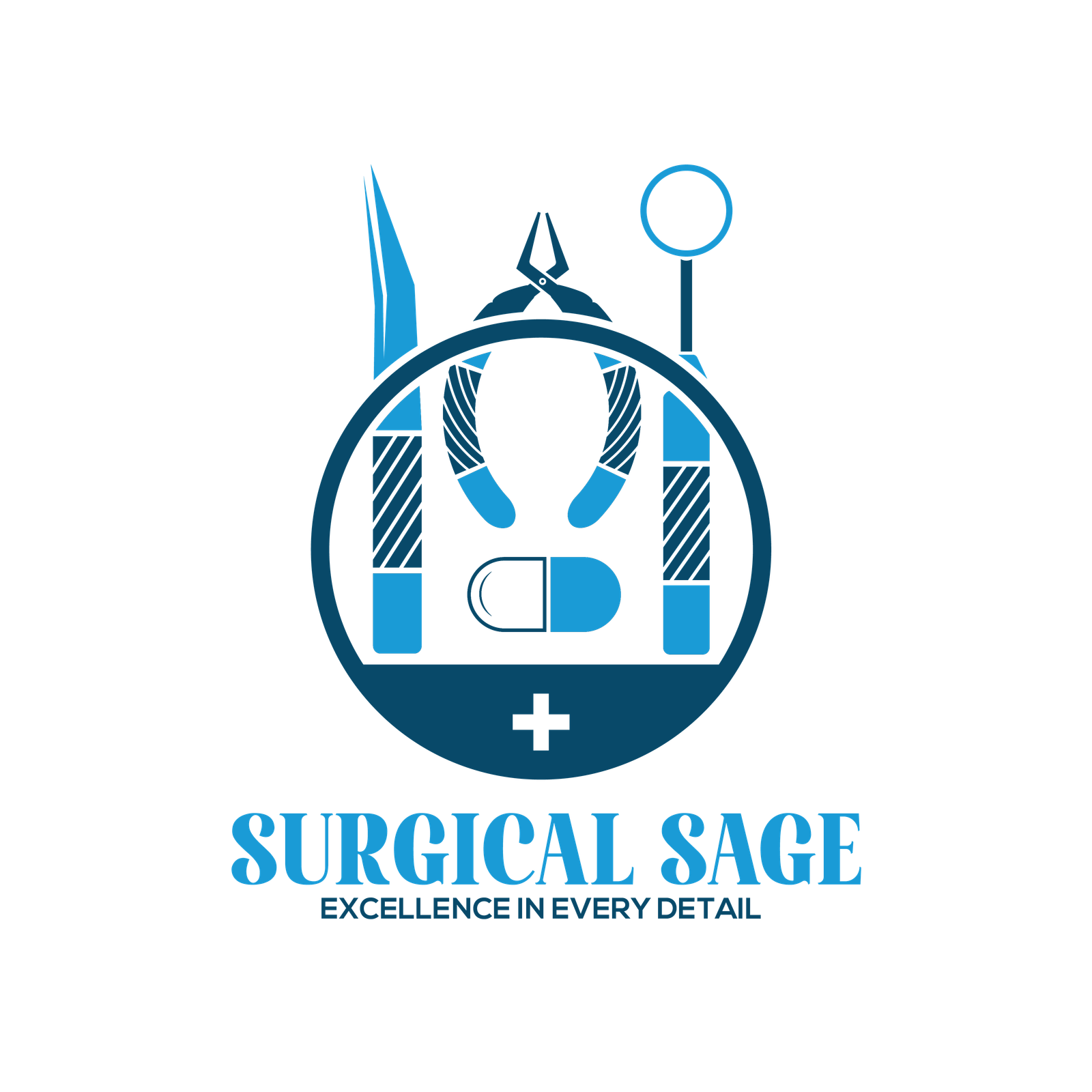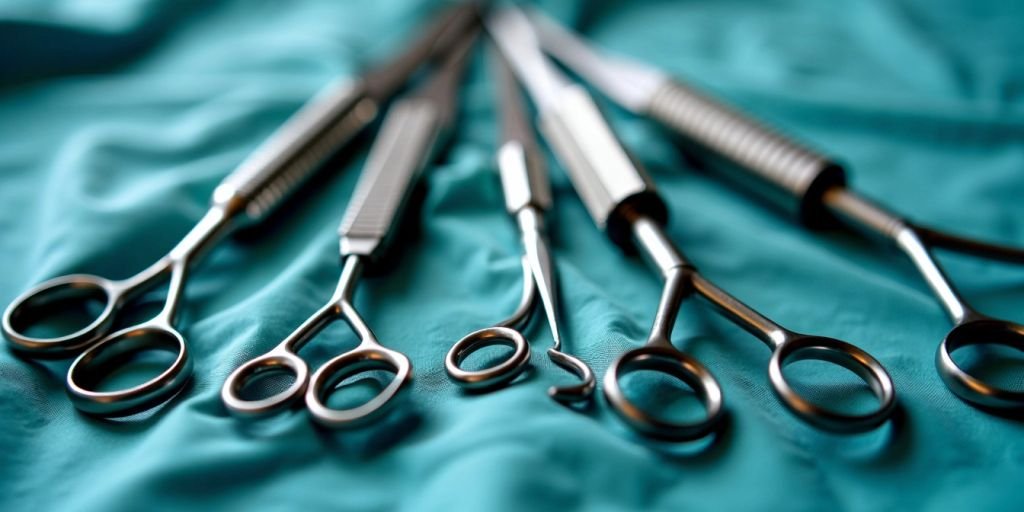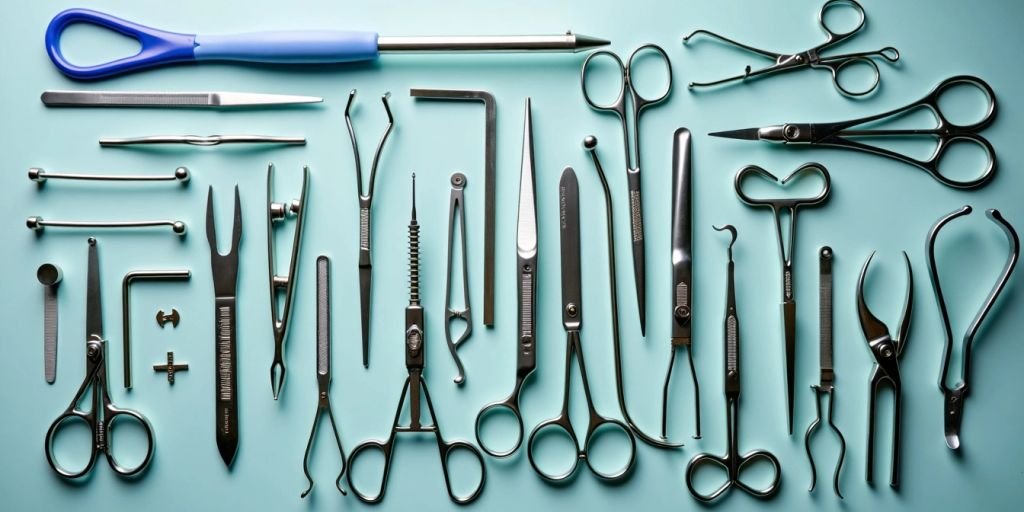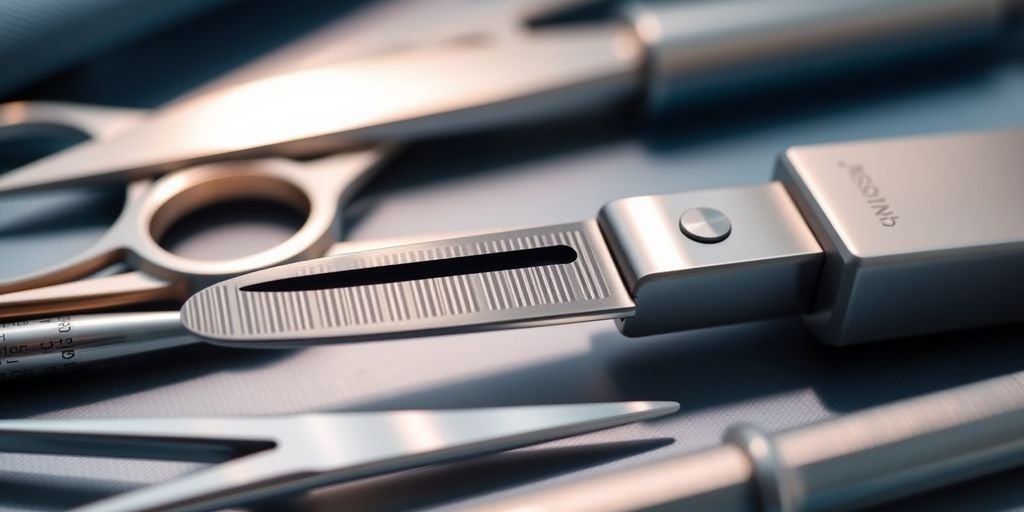German stainless steel surgical instruments are renowned for their exceptional quality and performance. This article explores the unique benefits of using these instruments in medical procedures. From their durability to their precision, German stainless steel instruments are a top choice for surgeons worldwide.
Key Takeaways
- German stainless steel surgical instruments offer superior corrosion resistance, ensuring longevity and reliability in medical settings.
- These instruments are biocompatible, making them safe for use in the human body without causing adverse reactions.
- The heat resistance of German stainless steel allows these instruments to withstand high temperatures during sterilization processes.
- Surgeons prefer German stainless steel instruments for their enhanced sharpness and consistent performance, which reduce surgical fatigue.
- The durability of German stainless steel instruments makes them cost-effective over time, providing long-term value for medical facilities.
Understanding the Unique Properties of German Stainless Steel
German stainless steel is renowned for its exceptional qualities, making it a top choice for surgical instruments. Let’s explore its unique properties.
Corrosion Resistance
Surgical instruments often come into contact with various fluids and undergo different sterilization methods. To withstand these conditions, they must be corrosion-resistant. German stainless steel is the best choice due to its superior ability to resist rust and corrosion.
Biocompatibility
Biocompatibility means that the material does not cause adverse reactions when in contact with living tissues. Surgical instruments must be biocompatible to prevent negative post-surgery outcomes. German stainless steel ensures this crucial property, making it safe for medical use.
Heat Resistance
Surgical instruments need to endure high temperatures during sterilization and cleaning processes. German stainless steel can withstand temperatures up to 400°C, ensuring that the instruments remain effective and safe for repeated use.
The unwavering commitment to patient safety is evident in the choice of materials like German stainless steel, which is lightweight, rustproof, and built for endurance.
The Role of German Stainless Steel in Surgical Precision

Enhanced Sharpness
German stainless steel surgical instruments are known for their exceptional sharpness. This sharpness is crucial for making precise incisions and reducing tissue damage. Surgeons rely on these instruments to perform delicate procedures with confidence, knowing that the instruments will maintain their edge throughout the surgery.
Consistency in Performance
One of the standout features of German stainless steel is its consistency in performance. Instruments made from this material offer reliable results every time, which is essential in the operating room. This consistency helps in reducing the risk of complications and ensures that each surgical procedure is carried out with the highest level of precision.
Reduced Surgical Fatigue
Using high-quality instruments can significantly reduce surgical fatigue. German stainless steel instruments are designed to be ergonomic and lightweight, making them easier to handle during long procedures. This not only benefits the surgeon but also contributes to better patient outcomes by allowing for more precise and controlled movements.
The use of German stainless steel in surgical instruments is a game-changer, offering unmatched precision and reliability in the operating room.
Durability of German Stainless Steel Surgical Instruments

Longevity in Use
German stainless steel surgical instruments are known for their exceptional durability. These instruments are designed to withstand repeated use and rigorous sterilization processes without losing their integrity. This makes them a reliable choice for long-term use in medical settings.
Resistance to Wear and Tear
One of the standout features of German stainless steel is its resistance to wear and tear. The tightly bound molecules in the steel ensure that the instruments remain smooth and free from stains, even after extensive use. This resistance to damage means that the instruments maintain their performance over time.
Cost-Effectiveness Over Time
While the initial cost of German stainless steel surgical instruments may be higher, their longevity and durability make them a cost-effective option in the long run. These instruments do not need to be replaced as frequently as those made from other materials, leading to savings over time.
The durability of German stainless steel surgical instruments ensures that they can be used repeatedly without compromising on quality, making them a valuable investment for any medical practice.
Common Types of German Stainless Steel Surgical Instruments
German stainless steel surgical instruments are known for their exceptional quality and durability. These instruments are used across various medical fields due to their reliability and precision. Here are some common types of German stainless steel surgical instruments:
General Surgery Instruments
General surgery instruments made from German stainless steel include:
- Scalpel Handle
- Scalpel Blade
- Mayo Scissors
- Metzenbaum Scissors
- Iris Scissors
- Bandage Scissors
- Operating Scissors
- Tenotomy Scissors
- Wire Cutting Scissors
- Potts Smith Scissors
Dental and Orthopedic Instruments
In dental and orthopedic procedures, German stainless steel instruments are highly valued. Some of these instruments are:
- Dental Mirror
- Dental Explorer
- Dental Scaler
- Bone Chisel
ENT Instruments
For ear, nose, and throat (ENT) surgeries, German stainless steel instruments are essential. Common ENT instruments include:
- Myringotomy Knife
- Tonsil Forceps
- Tonsil Scissors
- Killian Long Bladed Nasal Speculum
- Vienna Nasal Speculum
German stainless steel instruments are crafted to meet the highest standards, ensuring precision and reliability in every procedure.
These instruments are designed to provide the best outcomes in various surgical fields, making them a preferred choice for many medical professionals.
Specialized Instruments Made from German Stainless Steel
Needle Holders
Needle holders are essential for suturing during surgeries. German stainless steel needle holders are known for their durability and precision. Some popular types include:
- Castroviejo Needle Holder
- Tungsten Carbide Needle Holder
- Barraquer Needle Holder
Speculums
Speculums are used to widen an opening in the body for examination. German stainless steel speculums are highly reliable and corrosion-resistant. Common types are:
- Rectal Speculum
- Killian Long Bladed Nasal Speculum
- Vienna Nasal Speculum
Dilators
Dilators help in expanding narrow passages in the body. German stainless steel dilators are preferred for their strength and longevity. Examples include:
- Hegar Uterine Dilator
- Hank Dilator
- Urethral Sound
German stainless steel instruments are handcrafted with premium surgical grade stainless steel to ensure durability and long life. This makes them a top choice for specialized surgical tools.
Quality Grades of German Stainless Steel
The grade of a surgical tool is determined based on attributes like quality control, material, and craftsmanship. Let’s discuss quality grades:
Premium Quality Instruments
Manufacturers use high-quality 400 series German forged material for manufacturing premium instruments. These instruments feature a satin or matte finish designed to minimize the glare of surgical lighting. Premium-grade instruments ensure precision, durability, strength, and corrosion resistance. To ensure quality assurance, strict and controlled inspection is performed on these materials to achieve the expected instrument.
Mid-Grade Instruments
Mid-grade instruments are also made from German stainless steel but may not undergo the same rigorous inspection as premium-grade tools. They offer a balance between cost and quality, making them a popular choice for many medical facilities. These instruments are reliable but may not have the same longevity as premium-grade options.
Economic Options
Economic-grade instruments are often made from recycled steel and may be plated to cover imperfections. While they are more affordable, they are designed for single use or as disposable instruments. These instruments can break more easily and may rust over time, making them less suitable for long-term use.
Our surgical kits and packs are crafted from German stainless steel, ensuring longevity and reliable performance. We understand that each surgeon has unique needs, and our instruments are designed to meet those demands.
Why Surgeons Prefer German Stainless Steel Instruments
Trust in Quality
Surgeons around the world have a strong preference for German stainless steel instruments due to their reputation for manufacturing top-notch and high-quality instruments. This trust is built on years of consistent performance and reliability in the operating room.
Global Reputation
German stainless steel has earned a global reputation for excellence. The precise manufacturing techniques and tighter processes used in Germany result in superior instruments that are highly valued by medical professionals.
Positive Clinical Outcomes
The use of German stainless steel instruments often leads to positive clinical outcomes. These instruments are known for their exceptional durability, corrosion resistance, and biocompatibility, which contribute to successful surgical procedures.
The choice of surgical instruments can significantly impact the success of a procedure. German stainless steel instruments are preferred for their unmatched quality and reliability.
Maintenance and Sterilization of German Stainless Steel Instruments
Sterilization Techniques
Sterilizing German stainless steel surgical instruments is crucial to ensure patient safety. Proper sterilization helps prevent infections and extends the life of the instruments. Common methods include autoclaving, which uses steam under pressure, and chemical sterilization, which involves using disinfectants. It’s important to follow the manufacturer’s guidelines for each instrument.
Routine Maintenance
Regular maintenance of these instruments is essential. After each use, instruments should be cleaned using a pH-neutral or slightly alkaline detergent. Avoid substances that could tarnish the steel. Inspect the instruments for any signs of wear or damage and address any issues immediately to maintain their performance.
Avoiding Common Pitfalls
To keep your instruments in top condition, avoid common mistakes such as using abrasive cleaners or failing to dry instruments thoroughly after cleaning. Store instruments in a dry, clean environment to prevent corrosion and other damage. Proper handling and storage can significantly extend the life of your surgical tools.
Regular maintenance and proper sterilization are key to ensuring the longevity and effectiveness of German stainless steel surgical instruments.
Environmental Impact of Using German Stainless Steel
Sustainability
German stainless steel is known for its long lifespan and low maintenance needs. This means fewer replacements and less waste over time. The production processes are also designed to be energy-efficient, reducing the overall carbon footprint.
Recyclability
One of the standout features of German stainless steel is its high recyclability. The material can be melted down and reused without losing its quality. This reduces the need for new raw materials and helps in conserving natural resources.
Reducing Medical Waste
Using durable and long-lasting surgical instruments made from German stainless steel helps in significantly reducing medical waste. These instruments can be sterilized and reused multiple times, unlike single-use plastic instruments that contribute to waste.
The durability and recyclability of German stainless steel make it an environmentally friendly choice for surgical instruments.
By choosing German stainless steel, healthcare facilities can make a positive impact on the environment while maintaining high standards of care.
Innovations in German Stainless Steel Surgical Instruments
Advanced Manufacturing Techniques
Recent advancements in manufacturing have led to the creation of smaller, lighter, and more ergonomic instruments. These innovations allow for greater precision and control during surgeries. Techniques like 3D printing enable the production of customized implants that fit a patient’s unique anatomy, reducing the risk of complications.
Customization and Personalization
Additive manufacturing technologies, such as 3D printing, have revolutionized the production of surgical instruments. These technologies allow for the creation of implants and tools tailored to individual patients, enhancing surgical outcomes and reducing recovery times.
Future Trends
The future of German stainless steel surgical instruments looks promising with the integration of smart technologies. Implants embedded with sensors and wireless communication capabilities can monitor patient health in real-time, providing personalized and proactive treatment options. Additionally, innovations in sterilization technologies, like plasma sterilization, offer faster and more efficient ways to ensure instrument safety.
Comparing German Stainless Steel to Other Materials
When it comes to surgical instruments, the choice of material is crucial. German stainless steel is often compared to other materials like titanium, carbon steel, and even plastic. Each material has its own set of advantages and disadvantages, making the selection process highly dependent on the specific needs of the surgical procedure.
Titanium vs. Stainless Steel
Titanium is known for its exceptional strength and light weight. It is also highly resistant to corrosion, making it a popular choice for implants. However, titanium is more expensive than German stainless steel and can be more challenging to work with. German stainless steel, on the other hand, offers a balance of strength, durability, and cost-effectiveness. While both materials are biocompatible, German stainless steel is often preferred for its ease of sterilization and maintenance.
Carbon Steel vs. Stainless Steel
Carbon steel is another material commonly used in surgical instruments. It is known for its sharpness and hardness. However, carbon steel is prone to rust and corrosion, which can be a significant drawback in a medical setting. German stainless steel contains chromium, which forms a protective layer against corrosion. This makes it a more reliable choice for instruments that need to be sterilized frequently. Additionally, carbon steel instruments may require more frequent sharpening and maintenance compared to their stainless steel counterparts.
Plastic and Other Materials
Plastic instruments are generally used for single-use applications. They are lightweight and cost-effective but lack the durability and precision of metal instruments. German stainless steel instruments, in contrast, are designed for repeated use and offer superior performance in terms of sharpness and reliability. While plastic instruments are useful for specific tasks, they cannot match the overall quality and longevity of German stainless steel instruments.
The choice of material for surgical instruments is a balance between cost, durability, and performance. German stainless steel often stands out due to its excellent corrosion resistance and ease of maintenance.
Conclusion
In summary, German stainless steel surgical instruments offer a range of benefits that make them a top choice for medical professionals worldwide. Their exceptional durability ensures they can withstand repeated use and rigorous sterilization processes without losing their effectiveness. The corrosion resistance of German stainless steel means these instruments remain reliable even when exposed to bodily fluids and various cleaning agents. Additionally, their biocompatibility ensures they are safe for use in medical procedures, minimizing the risk of adverse reactions. The ability to endure high temperatures further adds to their practicality, making sterilization straightforward and effective. With a global reputation for precision and excellence, German stainless steel instruments stand out as a reliable and high-quality option for surgical needs. Choosing these instruments means investing in tools that enhance surgical outcomes and ensure patient safety.
Frequently Asked Questions
What makes German stainless steel special for surgical instruments?
German stainless steel is known for its high quality, durability, and resistance to corrosion. These properties make it ideal for creating precise and reliable surgical instruments.
Why do surgeons prefer German stainless steel instruments?
Surgeons prefer German stainless steel instruments because of their consistent performance, sharpness, and durability. These traits help ensure successful surgical outcomes.
Are German stainless steel instruments cost-effective?
Yes, while they may be more expensive upfront, their long lifespan and resistance to wear and tear make them cost-effective in the long run.
How should I maintain and sterilize German stainless steel instruments?
To maintain and sterilize these instruments, use proper sterilization techniques such as autoclaving, and follow routine maintenance practices. Avoid using harsh chemicals that can cause corrosion.
What types of surgical instruments are made from German stainless steel?
German stainless steel is used to make a wide range of surgical instruments, including general surgery tools, dental and orthopedic instruments, and specialized tools like needle holders and speculums.
Is German stainless steel environmentally friendly?
Yes, German stainless steel is sustainable and recyclable, which helps reduce medical waste and environmental impact.
What are the different quality grades of German stainless steel surgical instruments?
German stainless steel surgical instruments come in various quality grades, including premium quality, mid-grade, and economic options. The grade affects the instrument’s durability and performance.
Can German stainless steel instruments withstand high temperatures?
Yes, these instruments can withstand high temperatures, making them suitable for sterilization processes that require heat, such as autoclaving.




